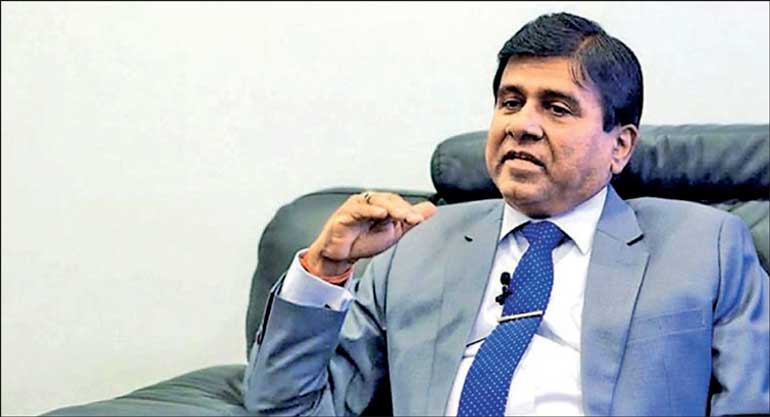Wednesday Feb 18, 2026
Wednesday Feb 18, 2026
Tuesday, 4 April 2023 00:25 - - {{hitsCtrl.values.hits}}

Justice, Prison Affairs and Constitutional Reforms Minister
Dr. Wijeyadasa Rajapakshe
By Maneshka Borham
Justice, Prison Affairs and Constitutional Reforms Minister Dr. Wijeyadasa Rajapakshe, PC says there is a weakness in the current judicial process relating to allowing indictments to be withdrawn. “There appears to be a disposition of them not carrying out their duty,” the Minister accused. Wijeyadasa noted that in the recent past, the Attorney General and the Commission to Investigate Allegations of Bribery or Corruption (CIABOC) were able to withdraw a significant number of cases filed by them, some based on recommendations by a certain Presidential Commission. “There is some fault in our current judicial system. A fault of habit it seems,” Wijeyadasa said. The Minister made these comments while delivering a speech at a seminar on the draft Anti-Corruption Bill organised by the National Movement of Social Justice yesterday.
The Minister highlighted that once indictments are filed, it becomes a matter of the courts and not of the indictor. He recalled that in the past if the Attorney General or the indictor goes before the court seeking to withdraw a matter, judges did not allow for it without valid reasoning. “But recently judges have been allowing cases to be withdrawn will nilly,” Wijeyadasa said. Calling it a serious weakness in the judicial process, the Minister said allowing cases to be withdrawn due to political interference or without valid reasoning is a wrong being committed by the courts.
Presenting several salient features of the draft bill to those gathered at the seminar, the Minister said he has long held the belief that the Commission to Investigate Allegations of Bribery or Corruption (CIABOC) cannot be led by retired officials. Commenting that certain commissions, such as the Presidential Commission of Inquiry (PCoI) into the Easter Sunday attacks tasked with one mission alone can consist of retired persons, the Minister said others such as the CIABOC which are not temporary commissions and is required to function continuously cannot be handled by such persons. “Appointing retired persons to these commissions are at times futile and could even lead to more corruption,” he said. The Minister said certain senior Government officials reaching their retirement seek out positions in Commissions and diplomatic missions for the perks connected to those postings. “Therefore, towards the end, they make decisions to appease those in power,” the Minister alleged. “This is opening the door to more corruption,” he said. Accordingly, the Minister said the new act will not allow those who are retired to be appointed to the CIABOC and will instead allow officials who are currently in the Government service to be appointed to its top posts.
While Wijeyadasa admitted that implementing an act is insufficient to combat corruption in the country, he said it needs several other factors to be successful. “In a democratic state for the people to be benefitted from a particular law, a mere piece of legislation is insufficient. While we have the law, there must also be the political will to genuinely rid the country of corruption,” the Minister said, adding that the people must also be responsible and not contribute to any act of corruption. “One cannot accept bribes if none are being given,” he pointed out. The Minister has decreed the new anti-corruption law will be the toughest in South Asia once enacted.